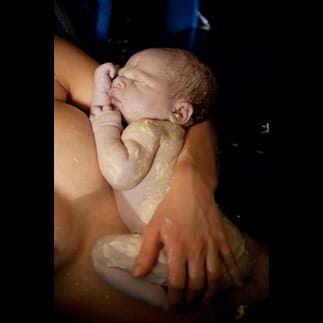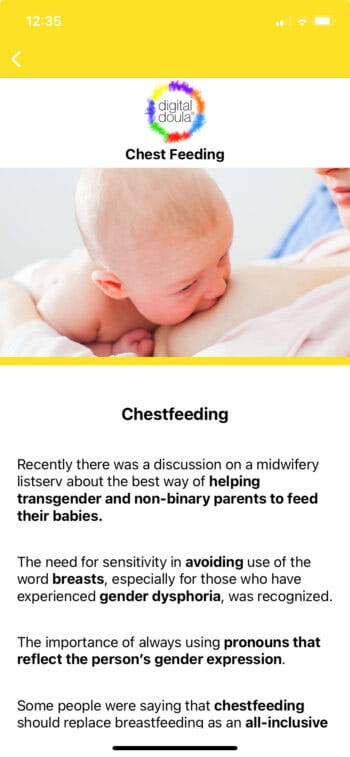The end of March marked World Doula Week 2024, and it reminded me of how important doula care can be in making the fourth trimester a positive experience for new parents. A doula is someone who mothers the mother, whether it’s during the labor and delivery process or during the fourth trimester, when she offers guidance and assistance that is reassuring and comforting. I have been both a birth doula and a postpartum doula in the US and the UK. There isn’t much difference between new parents in either English-speaking culture – the experience of the fourth trimester is a universal transition to parenthood for all societies. However, various cultures have dedicated rituals and traditions for new mothers, who are looked after by specialist caregivers, often referred to as ‘the 40 days’.
The 40 days
Around the world there are traditions for postpartum women, cultural norms that facilitate recovery. They are most frequently referred to as ‘the 40 days’, which happens to be roughly six weeks. During this time the mother is safely sequestered in either her own home or in a special location designed for postpartum women. She is attended by her female kin who provide support and assistance with the baby and take responsibility for the upkeep of the space. The purpose is to give the new mother time to slowly recover from birth and enjoy a cosy time building a loving relationship with her newborn, like a babymoon.
The 40 days also considers the sensitivity of the newborn, and during this time the baby is protected in a sacred environment with the mother and intimate family when at home. Husbands and siblings are cultivating their own relationship with the newborn during this sensitive time, when reverence for the 40 days after birth is upheld. Family and friends assist with the household, the rest of the family, and childcare. This is also done by postpartum doulas these days, who help to create a blessed atmosphere during the postpartum period.
International traditions
In Asian cultures, such as China and Vietnam, the time is often called ‘doing the month’ or ‘sitting the month’ and there are special centers that provide new mothers with some pampered seclusion during this time of postpartum confinement. It’s generally for 30 days, and has prescribed foods and restrictions on activities designed to help promote contraction of the uterus, promote lactation, and heal the perineum.
The Japanese have a similar custom of ansei, or peace and quiet, to help with the recuperation process after giving birth. These postpartum houses can be expensive, costing thousands of dollars, which is probably why the time is shortened to 30 days. A ‘proper’ confinement can be between 45 and 60 days long. The emphasis is on warmth, probably facilitating the flow of oxytocin. Foods are consumed to facilitate the recovery process and include special additives like eucommia bark and goji berries known to purge the uterus and adzuki beans are believed to reduce swelling. Cold foods are forbidden during the month because they are believed to slow down the involution process; foods believed to cool down the body’s energy flow are cabbage and watermelon.
Greek customs adhere to the 40 days, ‘fortying’, and this confinement happens at home after which the baby is symbolically taken to church for the first time at the end of her postpartum period and the mother asks for a special blessing. The modern interpretations of this traditional practice include an unimpeded establishment of breastfeeding, bonding time between parent and child, and protecting the undeveloped immune system of the newborn.
In India, the tradition of confinement and recuperation is called ‘Jaappa’ in Hindi, and a special diet is involved that facilitates milk production and increases hemoglobin levels. There are rules about pollution, or impurity, in this culture due to the childbirth process, and sex is not allowed. The mother is exempt from household chores and other matters of everyday life. The father would be purified with a ritual bath before visiting the mother in confinement.
These examples of cultures that provide this period of seclusion for new mothers is a far cry from the absence of postpartum support in most English speaking countries. These traditions are also common in South America, where it is called ‘la cuarentena’ (quarantine), and the Middle East. There is wisdom in this approach to the postpartum period: it is nurturing and nourishing to be looked after at a time when your vulnerability is at its peak. Anything that will facilitate the symbiotic relationship between you and your baby is a way to avoid suffering for both of you. It is a way of mothering the mother, and it offers the space for you to do nothing else but bond with your baby.
Forty days may not be realistic if you have other children or must work to pay bills, but it’s a matter of attitude about what’s expected of women, or what women expect of themselves, in the postpartum period. Unrealistic expectations of what’s possible can really do a woman in. If the 40 days tradition were embraced in our society, there could be much more ease and flow during this transition, rather than anxiety and depression for not having met the harsh expectations of what ‘should’ be.
Postpartum Doulas
Once upon a time in the 20th century new mothers would hire a baby nurse to help. I did this once and knew I’d never do it again because the nurse ends up usurping the mother’s role in doing all the baby care which the mother needs to learn. A doula will come in and do light housework, some cooking, run errands and tend to older children while the mother is supported and secure in getting to know her baby and its needs, knowing that the scut work is taken care of.
This can also be done by the family if your relationship with that person is a warm and compassionate one. You run the risk of family members commenting on how you do things (bound to be different to what they have done) which can contribute to your sense of inadequacy at a tender stage in the development of yourself as a mother. Doulas bring an objective perspective to your adjustment in the weeks after a baby is born.
If there is no one that you can bring in, then you need to lower your standards of cleanliness during this time. Being house proud will only make you exhausted. Women often make the mistake of rushing about doing things around the house while the baby is sleeping, and not getting the rest that they need themselves.
The added benefit of a postpartum doula is she will also help with breastfeeding and provide guidance with other maternal postpartum needs in addition to household tasks. A postpartum doula is a gift, an investment that can have long lasting benefits for the whole family, because when mom is supported everyone else can flourish too.
Another reason that doulas are so valuable is they look after the mother, at a time when the attention has shifted to the baby. Mothers start to feel invisible after being lauded throughout the pregnancy. And fathers/partners can use the help too as they adapt to the new situation, and benefit from learning about baby care from the doula. Doulas can screen visitors and phone calls for you, so you don’t get overly fatigued.
We cannot diminish the importance of having help in the early days of the postpartum period, which would include someone to hold the baby so you can take a shower or have a nap. Someone monitoring your nutritional and hydration needs is crucial because too often it gets overlooked under pressure to care for a baby 24/7. Someone to listen to your concerns without judgment is tremendously healing during the early days of newborn parenting.
It is unfortunate that there aren’t embedded systems of care for postpartum mothers like those mentioned above, or like the kraamzorg, or postpartum maternity care, that serves a similar purpose in the Netherlands’ maternity care system. It is part of the standard care in Holland, and I discuss this more in my Digital Doula ®2.0 postnatal app (available in the App Store and Google Play). The cost is minimal for new parents.
Postpartum doula care is a service that can be expensive, but the benefits of that personalized care are priceless. Everyone in the family prospers by the calming and reassuring presence of a doula after birth. Until we instil a system for birth aftercare that acknowledges this pivotal time in the new family, postpartum doulas can fill the gap in postpartum care for new mothers and their families.







